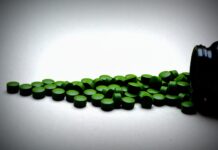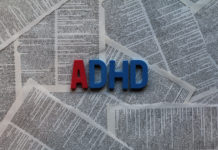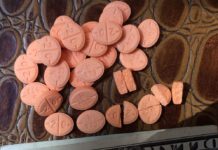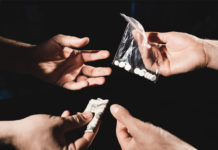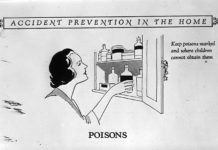Teacher Wellbeing Matters for Student Mental Health
Teacher’s personal wellbeing plays a role in students’ mental health outcomes, suggests a new study.
Kids Diagnosed with Autism More Likely to Get Psychotropic Drugs
Children diagnosed with an Autism Spectrum Disorder (ASD) are much more likely to be prescribed a psychotropic medication.
Poor and Foster Care Children More Likely to be Diagnosed and Treated with Psychiatric...
Study details Medicaid-insured birth cohort’s exposure to psychiatric medications and mental health services.
43% Increase in ADHD Diagnoses among School-Aged Children in US
Citing a 43 percent jump since 2003, researchers estimate that 5.8 million school-aged children and teens in the US now have an ADHD diagnosis, a staggering 12 percent of this population. The new NIH-funded analysis also found that the percentage of girls diagnosed with ADHD was up 55% and that the percentage of Hispanic children diagnosed shot up 83% over the same timeframe.
Germany Rejects New ADHD Drug
Finding that Shire's study of its successor to Adderall XR, Vyvanse, (lisdexamfetamine; known in Germany as Elvanse) was too short and did not look at the drug...
ADHD Drugs Linked to Prolonged, Painful Erections
FDA regulators have updated the warning labels on methylphenidate products such as Ritalin, Focalin and Concerta to reflect reports of prolonged, painful erections (priapism)...
Chew on This: FDA Embraces Big Pharma; Takes Aim at Big Gum
May 8th in the USA Today: “WASHINGTON (AP) — Wrigley says it is taking a new caffeinated gum off the market temporarily as the Food and Drug Administration investigates the safety of added caffeine.” Really? Major Tranquilizers, Amphetamines, Benzodiazepines, and Selective Serotonin Reuptake Inhibitors have all been approved by the FDA for the treatment of “mental illness.” These drugs are being prescribed to youth, some as young as 3 and 4 years of age. My Big League Chew is more dangerous than Uncle Jim’s Seroquel or my big brother’s Adderall?
The Presumption of Incompetence: Why Traditional ADHD Treatments Fail
The two most popular interventions for ADHD are drugs and stringent control. Those who believe in the traditional biological determinist view assert that others must provide the control that people diagnosed with ADHD lack. In this treatment protocol, diagnosed individuals are remanded into treatment that mimics institutional care (i.e., others control their access to resources and their behavior is restrained with drugs). While both of these impositions can yield some short-term benefits, they can also produce unwanted side effects much like what happens when there is incarceration
Researchers Argue that ‘ADHD’ Doesn’t Meet DSM Definition of a Disorder
New research questions whether the diagnosis of ADHD even meets the criteria for a disorder, as set out in the manuals used by the medical and psychiatric fields.
Study Reveals Inconsistency in ADHD Diagnostic Determinations
Researchers compare differences between research and clinical diagnoses of ADHD and explore the consistency of clinical determinations over time
CDC Reports Increased Psychostimulant Prescriptions in Women of Reproductive Age
Psychostimulant prescriptions have increased by 344% (from 2003 to 2015) for women of reproductive age (15-44 years old).
Study Finds Music Therapy May Be Effective in Clinical Practice
In a new study published in The Journal of Child Psychology and Psychiatry, Professor Sam Porter and co-authors, present the results of a music...
Study Finds Parents Need More Support to Identify PTSD in Children
A new study, published in The Journal of Clinical Psychiatry, investigates the presence of posttraumatic stress symptomatology in children involved in motor vehicle collisions...
Advancing the Use of Safe and Effective ADHD Treatment Options
The American public has come to view ADHD drug treatment as a rather benign option for common behavioral and academic issues. A recent report by the Centers for Disease Control and Prevention indicates that 14% of American children receive a diagnosis of ADHD before the end of childhood. Rates of diagnosis and treatment vary by geographic region. In some communities rates of treatment are much higher than the national average. By most any reasonable measure, the number of children who are medicated under the guise of ADHD is out of bounds. Current levels of ADHD drug treatment are unsafe for individuals and society.
Warning to Parents: Psychiatry is How Kids Get High and Die in the USA
Street drug dealers and stimulant-peddling doctors both get clients high and addicted for profit. So there is really no difference between what they do except that doctors are more ‘successful’ at it, since they enjoy many advantages over illicit dealers and can get away with doing it legally.
What if ACEs (Adverse Childhood Events) Were the Basis of Mental Health Treatment?
What would happen if the mental health system fully recognized the pervasive and profound impacts of trauma on their clients? How might a deeper appreciation of the multi-faceted sequelae of childhood maltreatment and toxic stressors reshape mental health services? While the implementation of trauma-informed care in mental health programs has made significant inroads, the dominant bio-reductionist model continues to constrain and undermine progress.
Does Your Child Have ‘ADHD’? It Might Depend On Your Doctor
A study published in the journal Pediatrics reveals large differences from one pediatrician to the next when it comes to diagnosing and prescribing drugs for ‘ADHD.’ The researchers found that the percentage of children being diagnosed with ‘ADHD’ varied from as high as 16% of patients at some offices to as little as 1% of patients at others. The data also revealed significant but lower variability in the pediatric diagnosis of anxiety and depression.
Antipsychotics for Childhood “Behavioral Problems” Skyrocket
Researchers from Columbia University and other New York institutions found a dramatically increasing use of antipsychotics to treat ADHD and other behavioral problems in...
Technology Not a Strong Factor in Adolescent Well-being, New Study Claims
A new study suggests digital media use among adolescents has a smaller negative effect on well-being than bullying or smoking marijuana.
Childhood Stress Alters Memory and Brain Structure
Researchers from the universities of Wisconsin, Pennsylvania, Illinois and New Orleans collected MRI scans and assessments of executive functioning and stress exposure from 61...
NIMH Info for Parents on “ADHD” Misleading, Researchers Say
A new analysis of the information that the National Institute of Mental Health (NIMH) publishes for parents about attention deficit hyperactivity disorder (ADHD) concludes that the children’s experiences and contexts are ignored and that medication is presented, misleadingly, as the only solution supported by research evidence.
Pennsylvania Foster Kids Prescribed Too Many Psychotropic Drugs
Amid growing criticism about the over-prescription of psychotropic medication in foster care, Pennsylvania commissioned PolicyLab to conduct an analysis of the use of psychiatric drugs among all of the state’s Medicaid-enrolled children. The report, released in June, found that the rate of psychotropic prescriptions among youth in Medicaid and foster care was higher than previously reported.
Large Increase in Poison Control Calls for Children Taking ADHD Drugs
New data shows that calls to US poison control centers have increased significantly for children taking stimulant ADHD drugs.
Researchers Reveal Misconceptions About ADHD
A new article explains common misconceptions about ADHD that are held by teachers and mental health professionals and may lead to overdiagnosis and overmedication in schools.
Increasing Physical Activity in Schools May Improve Mental Health
A new article suggests integrating physical activity throughout the day may help to address the mental health of students.


